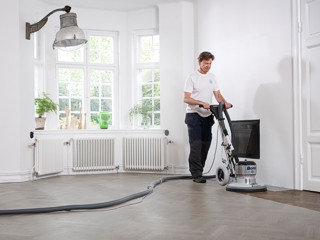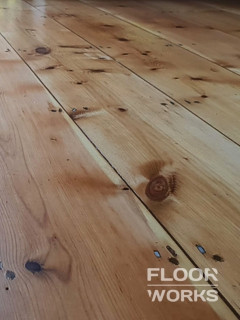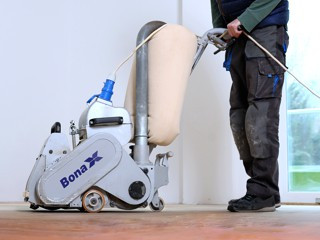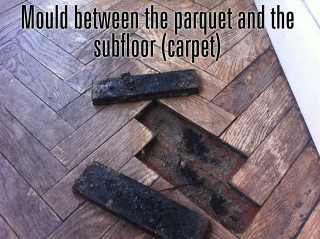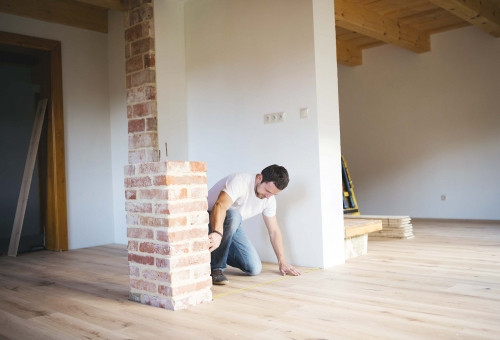Floorboards Restoration – Nails Or Screws
Floorboards Restoration – Nails Or Screws

In order to keep our wooden floor in good condition, we must be sure to clean and maintain it regularly. However, time is unforgiving and even the highest quality surface eventually will need some more serious attention. This usually includes floor sanding and thorough restoration activities. Unfortunately, if your floor installation isn’t properly levelled and stable, sanding is pointless. This means that you must make sure that your floorboards are properly secured, solid, and do not produce any squeaky noises. And here we come to the next point – Just how do we properly fix our floorboards? Do we use nails or screws?
To nail or NOT to nail - that is the question!

If you are experiencing problems with your floorboards, the root can often be found in temperature fluctuations and excessive moisture. Cupping, buckling, warping, mould or gaps between the boards are all serious issues which can be a real headache to deal with.
There are also less severe complications, however, like squeaky and loose floorboards. The reasons for such issues can be many but quite often the real cause lies in the method of fixing. The majority of the wooden floors today are secured to the joists with nails. This is the traditional way. But is it truly the best one?
Now, if your floor is experiencing a lot of temperature fluctuations the wood will contract and expand constantly so the nails can loosen and eventually even pop up. As you can imagine, loose nails will grant a lot more freedom of movement to the floorboards which in turn will allow them rub on each other and produce the annoying squeaking. The obvious solution to the problem? Screw the boards instead of nailing!
Some may wonder, ‘Ok, if nailing is so bad, why is it more widespread?’, the answer is simple. Most people don’t care enough about quality. They want to have their floor installed or repaired as fast as possible and as cheap as possible. Nailing is much faster and easier to do, rather than individually screwing each and every board. If you simply want to fit your floor and forget about it from this point on, this may be for you. Otherwise - don’t, because you never know when you may need to lift the boards again.
Just glue it and then screws?
One of the main advantages screwing has over nailing is the possibility to remove the floorboard. If you are ever to remove a screwed floor during the floorboards restoration process, you can easily re-screw it back in its old position. On the other hand, If you attempt to lift a nailed floorboard, you must snap the nails in the wood and re-nail on some other spot.
Needless to say, nothing lasts forever and screwing may be particularly convenient for future repairs. If you want to have access to wiring and pipework through your floor, screws again are the way to go.
Another great advantage is the fact that screws will pull the boards down better than any nails and hold without popping out. The tighter grip they provide makes screws the superior long term solution. If you have a solid wood floor (not floating engineered installation) the best option is to screw and glue your floor, thus increasing its stability substantially and preventing squeakiness.
The third benefit comes in terms of appearance. Most people prefer that elements such as nails or screws do not remain visible and ruin their perfect finish. Unless you use secret nailing, nails will remain a noticeable feature. Screws, on the other hand, can be covered with a gap-filling resin and become more or less undistinguishable from the rest of the board.
How to choose wisely?


We do believe that screws are the superior choice here. The new question here is what kind? Screws threaded all the way to the top or not? Truth is, that even if you glue and screw your floor, the wood will still move a bit. It is part of its nature. A screw with a thread on top will provide higher overall stability but if you want to remove the board, you will have harder time unscrewing.
We would like to point out that quality of nails or screws you use to fix your floor really do matter. If you want to save some money and buy cheap low-quality screws, expect them to break or snap easily. Generally, more expensive materials will provide a better outcome, so do not pinch pennies on this because it can make the difference between firmly fixed, and bouncing, squeaky boards.
